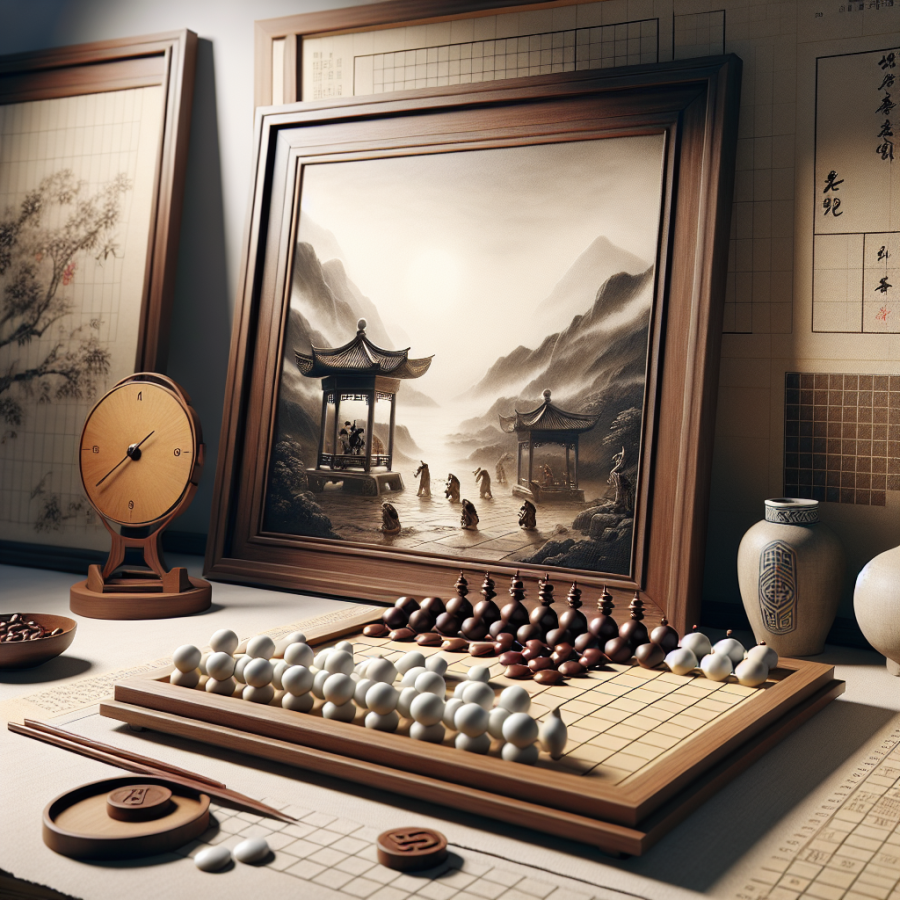Exploring the Rich History of China's Grand Chess
Exploring the Rich History of China's Grand Chess
The game of Xiangqi, commonly known as Chinese Chess, is deeply embedded in the cultural and intellectual heritage of China. With origins shrouded in the mists of time, Xiangqi is believed to have been played in various forms for thousands of years. The earliest mentions of a game resembling Xiangqi are found in historical annals dating back to the Warring States period (475-221 BC), though it is likely that the game's inception can be traced to even earlier times.
As Xiangqi evolved, it reflected the Chinese military strategies and social values of each dynasty, making the game not only an entertainment but also a teaching tool. Unlike its Western counterpart, which emphasizes the power of individual pieces, Xiangqi emphasizes the importance of balance and the interdependence of pieces, echoing the Chinese philosophical principles of harmony and interconnectivity.
During the Tang Dynasty (618-907 AD), Xiangqi began to take on a form more recognizable to modern players. Notably, it was during this period that Xiangqi became a popular pastime among the intellectual elite, with scholars and strategists using the game to sharpen their tactical skills. In the Song Dynasty (960-1279 AD), the game's rules were formalized and it became more widely played among all social classes, further engraining it into the fabric of Chinese society.
The game's rich history is also littered with legendary players and thinkers who contributed to the canon of Xiangqi literature, detailing complex strategies and game theories. One prominent historical figure is Liu Bowen (1311-1375), a military strategist and statesman of the Ming Dynasty, who was known for his profound skill in the game. He is credited with authoring 'Secrets of the Game of Xiangqi,' a text which continues to influence players to this day.
The layout of the Xiangqi board symbolizes various facets of war and governance. The board is divided by a river, with each side representing a territory, and the pieces are arranged to reflect a military formation. The game's connection to Chinese military history is so deep that several historical battles have been reconstructed using Xiangqi pieces and strategies, allowing enthusiasts and scholars to analyze the military tactics of ancient generals through the lens of the game.
Historical records also abound with tales of Xiangqi’s role in diplomacy and international relations.
Read also:
Determining the Perfect Golf Shaft: A Comprehensive Guide for Every Player
Deciphering the Complex Strategies of Xiangqi
Deciphering the Complex Strategies of Xiangqi
Xiangqi, also known as Chinese chess, is a strategy board game that has been played for centuries. Its deep strategic layers are what enthrall players and spectators alike. At its core, Xiangqi relies on the intricate maneuvers of differently powered pieces, each with a unique role and movement pattern on the board. The goal is similar to international chess, which is to checkmate the opponent’s general. However, the strategies to achieve this end are distinct and culturally rich.
One of the key strategic elements of Xiangqi that players must master is the proper use of the cannon, a piece that captures unlike any other in either Western or Eastern board games. Its distinctive capturing method, which requires a piece, either friendly or enemy, to leap over, introduces intricate tactical motifs to the game.
Another crucial strategy in Xiangqi is controlling the central files of the board. Dominance in the center can provide a player with mobility and flexibility, allowing their pieces to exert influence across the board. This is particularly significant for pieces like the Chariots, which can move without obstruction horizontally and vertically. Effective use of the Chariots can hem in an opponent's pieces and restrict their activity.
Elephants and Advisors protect the General and are vital for defensive strategies, but they also contribute to offensive postures by creating fortified positions from where assaults can be launched or supported. Understanding how to balance these defensive duties with offensive opportunities is a hallmark of high-level play.
Furthermore, a basic yet profound strategic consideration in Xiangqi is the concept of 'dead' versus 'live' pieces. A 'dead' piece is essentially a piece that is not contributing to the game, either by being trapped and unable to move without causing a disadvantage or by being positioned in such a way that it does not influence the game. A key strategic aim is ensuring that all your pieces are 'live' and influencing the board.
Moreover, the Soldiers in Xiangqi present unique strategy options as they gain power when crossing the river that divides the board. With this advancement, they threaten important lines, and their newfound ability to move laterally can disrupt the enemy's position. Anticipating the transformation of Soldiers upon crossing the river is a subtlety that can alter the tide of the game.
Sacrifice, a common strategy seen in many Chess variants, is also employed in Xiangqi.




